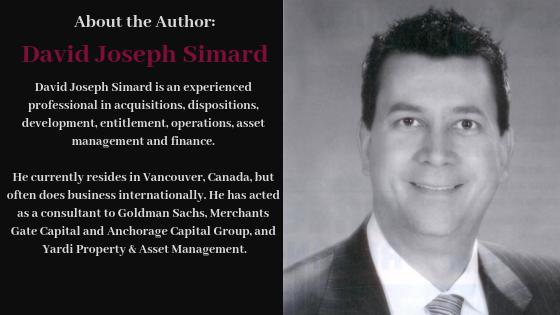
6 Books Every Leader Should Read
Learning and improving from personal experience is a great way to grow as a leader. Great leaders also know that preparation and research can teach lessons more quickly than if they were to make the mistakes themselves.
Here are 6 books that every leader should read if they want to be the best leader they can be.
Integrity: The Courage to Meet the Demands of Reality
By Dr. Henry Cloud
Integrity is a complex characteristic. In this book, Dr. Henry Cloud makes an impressive argument for why integrity is the key to success. Furthermore, he illustrates that integrity isn’t just something you’re born with. All of us have the opportunity for personal growth that will change both our personal and professional lives.
The Power of Positive Leadership
By Jon Gordon
Leaders are sure to face obstacles and negativity on a regular basis. Keeping a positive attitude in the face of life’s challenges can be difficult, but it is absolutely essential to be genuinely positive as a leader. Positivity can create a great culture of empowered and motivated teams that achieve results.
Quiet: The Power of Introverts in a World that Can’t Stop Talking
By Susan Cain
Introverts may not be the loudest voice in a room, but innovative people who would rather listen than speak are significantly undervalued in some businesses. From Rosa Parks to Dr. Seuss, introverts have made major contributions to our world. This well-researched book does wonders in letting us see the benefit of harnessing an introvert’s skill set.
Give and Take: A Revolutionary Approach to Success
By Adam Grant
It’s universally accepted that hard work, talent and a bit of luck will lead to a successful career. Here, Adam Grant focuses on a fourth factor — bringing others with you on your way to the top. Grant is a professor at Wharton Business School, and he uses his own research and other success stories to demonstrate that nice guys don’t have to finish last.
Start with Why: How Great Leaders Inspire Everyone to Take Action
By Simon Sinek
Why are some businesses and people more influential and successful than others? Simon Sinek has an idea called the Golden Circle that explains how any person can become more inspired and inspire others in return. The basis of this idea is that people are inspired by the reason behind something, then make that mission their own.
By Jeff Boss
Sometimes, the only thing holding you back is yourself. In this book, former Navy SEAL Jeff Boss provides top executives with 23 mental exercises that enhance leadership and success.


How Leadership Can Affect an Organization’s Culture
Leaders in a company or organization wear many hats. Their day-to-day job is much more than a typical job description would imply. Yes, they are probably responsible for sending reports and holding certain meetings. But they also hold a much bigger responsibility… Leaders have a direct effect on the culture of their workplace.
Let’s start with an example. If a company leader is regularly late for work and has a tendency to talk down on the company as a whole, the people who report to this leader will pick up on that negativity. They may even think, “If my manager doesn’t care about what our company is doing, why should I?”
Now, we can shift the focus to a more positive scenario. If a company leader is productive, encouraging, constructive and dedicated to their work, that behavior has the potential to motivate others. A leader’s influence can be especially strong if they are working with newer employees who are still adapting to the company’s overall culture.
It’s important to let employees know what you value, but demonstrating value through action and leading by example is the best way to create a culture around ethics and positivity.
Why Culture Matters
Employees don’t stay in a job solely because of perks like a coffee bar or new laptops. They stay because they enjoy coming to work and feel empowered to do their job.
The culture of a company has always been important, but there has been more buzz around the word “culture” in the past 20 years or so. There is reason to believe that it’s not a passing phase. Younger generations place a higher value on culture than those who came before them.
As years go on, developing a strong culture will be increasingly important for attracting talent, retaining employees and forming a brand identity. Are the company’s values based on innovation? Customer service? Team building?
Leadership in a Negative Culture
There is no doubt that a leader can impact workplace culture, but the roles can also be flipped. A culture can affect a leader as much as they can affect the culture. If a leader with the best intentions is consistently undermined, it can be a challenge to create that positive environment for their employees. This is most often seen when a manager is brought in from an outside organization and the employees are holding onto a negative culture that previously existed.
Instead of just giving in to the negativity, leaders have a choice. They can use creativity and a vision to inspire their employees. A boss will just tell people what to do, but great leaders have a way of making people want to change for the better. When employees know where an organization is heading, they will be more willing to invest in the small steps that lead to the end goal.
Holding a leadership position in a company or organization is no small task, but creating a strong culture can lead to an overall more cohesive and positive environment.


5 Ways to Motivate Your Team in the Workplace
Motivating your team is often easier said than done. Effectively inspiring your employees to do better while also understanding the individuality of their processes is a huge undertaking, often leaving leaders with one question… “Where do I start?”
Believe it or not, there are many ways for a person to motivate their team, feasible in any type of workplace.
These strategies will undoubtedly lead you and your team to success.
1. Make the Workplace Comfortable
Making sure that the workplace in which your team resides is not only clean, but comfortable can be the difference between your employees feeling good about where they work and feeling inhibited. It’s been shown that the mood of employees can change based on their environment, making this very important to follow.
This tip goes beyond physical comfort, as well. Standing desks and a working coffee machine are always a plus, but the overall atmosphere says more than the physical amenities.
2. Create a Positive Atmosphere
By promoting happiness throughout the workplace, you can improve overall productivity and satisfaction among employees. Abiding by what your employees want can be a great start to achieving this! To learn what your employees really want, consider being more open to feedback or sending out a survey.
3. Set Deadlines
Though it might seem that the most effective way to motivate your employees is by being flexible, oftentimes not having enough deadlines can create a loose atmosphere that results in less work getting done efficiently. To avoid this, be sure to set deadlines so there’s never any confusion. If employees know exactly which marks they have to be hitting, it will increase their overall chances of getting the work done on time and effectively. Flexibility should only be reserved for specific situations.
4. Only Check In When Necessary
One of the biggest complaints from employees is that there are unnecessary meetings that actually make it more difficult to get the necessary work done in the amount of time given. To avoid this, only hold meetings when they’re important—taking away time from your employees to check in on the work they’re doing can be counterproductive for the overall efficiency. In fact, if you have dedicated employees, they can actually get more work done when they don’t feel like they’re being monitored, allowing them to work in the way that’s most efficient for them. However, there may be some employees who need more nudging than others.
5. Quarterly Team Building Sessions
Even the most well-oiled team can benefit from a team building session every quarter. Motivation, creativity and communication can be improved, which benefits individuals as much as it does entire teams. A culture of collaboration is vital for productivity. Talking about it is one thing, but leaders need to actively cultivate that culture. Committing to initiatives 4 times a year is the perfect way to do so.

About David Joseph Simard
David Joseph Simard is currently a private real estate development and construction consultant based out of Vancouver, British Columbia, one of Canada’s most desirable housing and commercial real estate markets. While paving an unconventional path to his successful career in real estate, Simard has found ways to incorporate his varied experience and education throughout each new project. In addition to the success he’s seen with his own consulting business, David Joseph Simard has also found ways to use his expertise to give back to various public and non-profit organizations. Some of these initiatives include an appointment as the founding President of the Canada Nevada Business Counsel and his service to the Board of UNLV’s School of Business.
Before settling down in Vancouver, David Joseph Simard first found his enthusiasm for real estate and new construction development at the University of Windsor, in Windsor Ontario. Here, Simard studied both industrial psychology and history/international relations. This trend in multi-disciplined education would continue for Simard, as his path then took him down to East Lansing, Michigan. At Michigan State University, he would go on to receive two Bachelor of Arts degrees in both industrial psychology and history/international relations. Forever the proud Spartan, Simard moved ahead with his pursuit of acquiring a Juris Doctorate from MSU, recognized as the highest level of education available in the United States’ legal sector.

It was by total happenstance that David Joseph Simard found his first part-time job in real estate while still in school. This wouldn’t be considered the most relevant job for an international relations major. But, Simard found a fast affinity for his work as a real estate broker and later moved on to the next phase of his career, transitioning to real estate development. Simard didn’t realize at the time that he was beginning a career in the industry that would span nearly 30 years. His path eventually led to the international real estate industry and consulting Fortune 500 companies, keeping their multi-million dollar projects on time and under budget.
David Joseph Simard‘s current role finds him continuing his consulting services for global companies, some of which include General Dynamics, Ericsson, and AT&T. Simard’s varied expertise lends his consulting services in legal, financial, and business operations, while providing turnkey real estate project management solutions. Seeing a new construction project begin to take shape is what has kept Simard on this path. The capability to see a project to completion through all areas of a commercial and residential real estate development has enabled Simard to make his mark throughout the industry. When working with Simard, his clients have echoed the same positive experiences of having worked with a unique talent that can guide them through the full life cycle of a project and across all phases.
In addition to his other public service efforts, David Joseph Simard has also served the Boards of the Lied Institute for Real Estate, NDA, and NAIOP. When spending time outside of his professional path, Simard is a wine enthusiast that you may likely find attending a wine tasting at one of Vancouver’s fine vineyards. He also enjoys more strenuous outdoor activities like snowboarding, skiing, and hiking.
